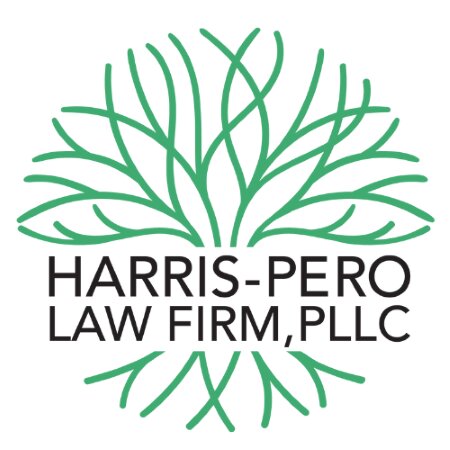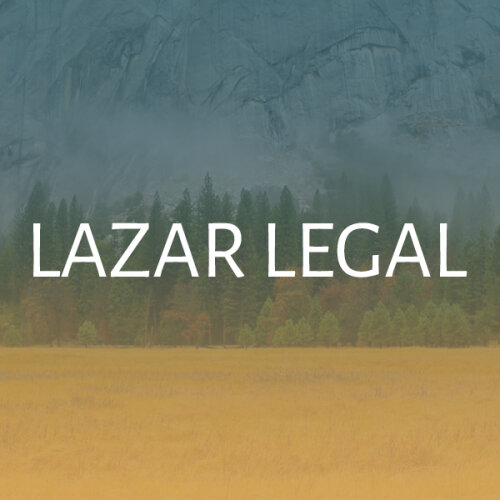Best Guardianship Lawyers in New York
Share your needs with us, get contacted by law firms.
Free. Takes 2 min.
Or refine your search by selecting a city:
List of the best lawyers in New York, United States
About Guardianship Law in New York, United States
Guardianship is a legal arrangement established by a court giving one person or entity the authority to make decisions on behalf of another individual who is unable to make decisions independently. In New York, guardianship typically applies to minors or adults who are incapacitated and cannot manage their personal, medical, or financial affairs. The process and requirements for guardianship are governed by New York State laws and are designed to protect the interests and rights of the person in need of assistance, commonly referred to as the ward.
Why You May Need a Lawyer
There are several situations in which legal assistance with guardianship may be necessary. Some common scenarios include:
- If you are seeking guardianship of a minor child due to death, incapacity, or unavailability of the child’s parents.
- If you have a family member or loved one with a developmental or intellectual disability and need legal authority to make medical or financial decisions for them.
- If an adult becomes incapacitated due to illness, disability, or old age, and can no longer manage their personal or financial affairs independently.
- If a dispute arises regarding who should serve as guardian, or if there are allegations of guardian misconduct or abuse.
- If you are a guardian and require guidance on fulfilling your legal obligations and responsibilities.
A lawyer can help navigate the often complex court procedures, ensure that the correct type of guardianship is pursued, prepare and file necessary documents, and represent you in court hearings.
Local Laws Overview
Guardianship laws in New York are primarily outlined in Article 17 and Article 17-A of the Surrogate's Court Procedure Act and Article 81 of the Mental Hygiene Law.
- Article 17: Governs guardianship of minors. It addresses the appointment and responsibilities of a guardian for children under 18 whose parents are deceased or unable to care for them.
- Article 17-A: Addresses guardianship for developmentally or intellectually disabled adults over 18, often including individuals with conditions such as autism, cerebral palsy, or intellectual disabilities.
- Article 81: Focuses on guardianship for adults who become incapacitated due to accident, illness, or age and are in need of assistance with personal or property matters. Article 81 guardianship is tailored to the specific needs of the individual, aiming for the least restrictive form of intervention.
Guardians must follow strict court oversight, including filing annual reports, keeping detailed accountings, and acting in the ward’s best interests. Failure to comply can result in removal or legal penalties. The court prioritizes the individual's preferences and autonomy wherever possible.
Frequently Asked Questions
What is the difference between guardianship of a minor and an adult in New York?
Guardianship of a minor involves caring for someone under 18 whose parents cannot provide care, while adult guardianship is for individuals over 18 who are incapacitated and unable to manage their own affairs because of illness, disability, or other reasons.
How do I start the guardianship process in New York?
You must file a petition in the appropriate court, provide supporting documents, and notify interested parties. The court will schedule a hearing to determine if guardianship is necessary and who should be appointed.
Who can serve as a guardian?
A guardian can be a family member, friend, professional, or, in some cases, a public agency. The court will choose a guardian based on the best interests of the person in need.
What are the responsibilities of a guardian in New York?
A guardian’s duties may include managing personal care, medical decisions, and finances, depending on the court order. Guardians must always act in the best interests of the ward and report regularly to the court.
Can more than one guardian be appointed?
Yes, the court can appoint co-guardians to share responsibilities or successor guardians to step in if the primary guardian cannot serve.
Is guardianship permanent?
Guardianship can be temporary or permanent, depending on the circumstances and court orders. It may be modified or terminated if the ward’s situation changes.
Do I have to go to court to become a guardian?
Yes, all guardianship appointments in New York require a court proceeding to ensure proper oversight and protection of the individual’s rights.
How does the court decide if someone needs a guardian?
The court considers medical evidence, personal testimony, and evaluations to determine if the person is incapacitated and unable to manage their affairs without assistance.
What if there is a disagreement over who should be guardian?
The court will hear all relevant testimony and may appoint a neutral evaluator or attorney to represent the proposed ward’s interests before making a final decision.
Can I contest or challenge a guardianship?
Yes, individuals and interested parties can object to a guardianship appointment or seek changes by presenting evidence and legal arguments in court.
Additional Resources
For further guidance, consider the following resources:
- New York State Unified Court System - Provides court forms, instructions, and general information on guardianship proceedings.
- Surrogate's Court in your county - Handles guardianship for minors and developmentally disabled persons.
- Supreme Court (Guardianship Part) or Mental Hygiene Legal Service - Offers assistance for adult guardianship proceedings.
- Legal Aid Societies or local bar associations - These organizations can offer referrals or direct legal assistance.
- New York State Office for People With Developmental Disabilities (OPWDD) - Specializes in services and support for individuals with developmental disabilities and their families.
Next Steps
If you believe guardianship may be necessary for a loved one or you have been served with guardianship papers, it is important to act promptly. Start by gathering any relevant information about the person in need of assistance, including medical records and financial documents. Consult with a qualified guardianship attorney who can guide you through the process, explain your rights and responsibilities, and help prepare necessary paperwork. If possible, arrange a consultation with legal aid organizations or local bar associations for possible low cost or pro bono assistance. Finally, make sure to follow all court requirements and deadlines to protect your rights and those of the person in need.
Lawzana helps you find the best lawyers and law firms in New York through a curated and pre-screened list of qualified legal professionals. Our platform offers rankings and detailed profiles of attorneys and law firms, allowing you to compare based on practice areas, including Guardianship, experience, and client feedback.
Each profile includes a description of the firm's areas of practice, client reviews, team members and partners, year of establishment, spoken languages, office locations, contact information, social media presence, and any published articles or resources. Most firms on our platform speak English and are experienced in both local and international legal matters.
Get a quote from top-rated law firms in New York, United States — quickly, securely, and without unnecessary hassle.
Disclaimer:
The information provided on this page is for general informational purposes only and does not constitute legal advice. While we strive to ensure the accuracy and relevance of the content, legal information may change over time, and interpretations of the law can vary. You should always consult with a qualified legal professional for advice specific to your situation.
We disclaim all liability for actions taken or not taken based on the content of this page. If you believe any information is incorrect or outdated, please contact us, and we will review and update it where appropriate.
Browse guardianship law firms by city in New York
Refine your search by selecting a city.















